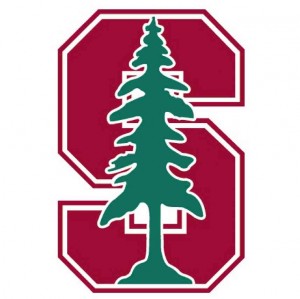Can’t afford US education? Harvard, Stanford and Vanderbilt can help

REPRESENTATIVES of Harvard, Stanford and Vanderbilt tell a very interested audience that Filipinos’ dream of studying in prestigious American schools is not beyond reach. RIMA JESSAMINE M. GRANALI/CONTRIBUTOR
Do you think you have what it takes to make it to Harvard in Massachusetts, Stanford in California or Vanderbilt in Nashville?
If you do, go for it then and send in your application before the year ends. Don’t worry about the cost. These universities offer a variety of options to help you finance your education.
Who knows? You might be the next Mark Zuckerberg, who launched Facebook from his dormitory room at Harvard University. Or Google chief executive officer Larry Page, who met his cofounder Sergey Brin at Stanford’s Computer Science Department. Or you could be a best-selling author like James Patterson, who got his master’s degree from Vanderbilt. At the very least, if you get to Vanderbilt, you would be neighbors with Taylor Swift, who has the penthouse of a high-rise apartment building near the campus, said Julie Chapman, university admissions officer.
In an information session at International School Manila in Taguig City, representatives of the three universities gave graduating students from different high schools, including Philippine Science High School and Manila Science High School, a preview of what to expect if they passed the schools’ respective selection processes and availed themselves of financial aid opportunities and resources for international students.
Harvard’s international admissions director Robin Worth said “there is no checklist” on the kind of students they want.
Article continues after this advertisement“We are not looking for particular attributes … I want to know who that person is. Admission is not a reward for what you have done but something to look forward to,” Worth said.
Article continues after this advertisement“We think about what that person can contribute … Certainly, we are looking for students who are good at learning, who are willing to work with others and share their ideas and experiences,” she added.
Standardized Achievement Test (SAT) or American College Testing (ACT) scores, while required, would not really affect your chances of getting into any of the three universities.
“They are more important to you than to us,” Stanford admission officer Cherry Cachero said.
Not test scores
High school records and good performance are more likely to boost your chances of getting into Stanford or Vanderbilt regardless of where you come from.

Cachero said Stanford had no preference and would be evaluating students based on available data, such as high school records.
“What we are looking for is evidence that you have challenged yourself while in high school because you will be challenged once you join these communities,” Cachero, a Filipino, said.
“We need to be reassured that you will come to our campus and start your academic career with a lot of energy and that you are going to be a right fit academically,” she added.
The admission process is “competitive and highly selective,” Cachero said, adding that only 5.1 percent of applicants make it.”
Only 2,144 of the 42,487 who applied at Stanford last year were accepted and only 1,720 students, representing 49 American states and 67 countries, actually enrolled.
But, as Worth put it, “If you don’t apply, the chance is zero. That’s the only certain thing.”
At Harvard, only 5.3 percent or 2,081 out of the 37,307 applicants were admitted this year. About 12.2 percent of the enrollees were international students.
Undergraduates from other universities wanting to transfer to Harvard should send in the requirements by March 1. Worth said one of 12 transfer students accepted this fall was a Filipino.

Same process
Worth said Filipinos who wish to study at Harvard would go through the same application process as American students.
She said requirements include the common or Universal College Application; Harvard College Questions for the Common Application or the Universal College Application Harvard Supplement; SAT or ACT scores with writing, normally two SAT subjects; final school report; midyear school report; high school transcript; evaluations from two teachers in different academic subjects; and a $75 (P3,513) fee or a fee waiver.
The applicant may pay the application fee with credit card through the Common Application (www.commonapp.org) or the Universal College Application (www.universalcollegeapp.com) websites, or send a check or money order to Harvard College Admissions, 86 Brattle Street, Cambridge, MA 02138.
A waiver of fees may also be requested. The guidance counselor or applicant may use an official form or write a short letter asking Harvard to waive the fee.
For other details, check www.college.harvard.edu/admissions/application-process/application-requirements and www.college.harvard.edu/admissions/application-requirements/application-tips.
Requirements for application at Stanford include a first-year Common Application, a $90 (P4,222) application fee or waiver request verified by a counselor, SAT or ACT with writing sent by the college board, school report with counselor recommendation, official transcripts, evaluations from two teachers and midyear report. More details are on www.admission.stanford.edu. Deadline is Jan. 3.

Harvard is one of the few US universities that have a need-blind admission policy. This means Harvard does not consider the applicant’s ability to pay when it decides to offer him or her a place in the university. And when admitted to Harvard, an international student may get equal access to financial aid as an American.
Prospective international students may apply for financial aid at Harvard by filing a CSS/Financial aid profile via the college board (www.student.collegeboard.org/css-financial-aid-profile) by Feb. 1. Submit your parents’ 2015 income tax documents, student’s income tax document or a tax nonfiler statement, business documents, trust or estate documents and additional information on unusual expenses or circumstances through the College Board institutional documentation service (www.idoc.collegeboard.org/idoc) by March 1.
At Harvard, more than 70 percent of students receive some form of financial aid, 20 percent of the students pay nothing and 100 percent graduate debt-free.
Worth explained that parents with an income of less than $65,000 (P3.04 million) were not expected to pay for their child’s education, while those with incomes between $65,000 and $150,000 (P3.04-7.02 million) pay 0 to 10 percent of their income.
Harvard creates an individualized aid package to meet a student’s need. The package may include scholarships, outside rewards, loans and jobs in university institutions, including libraries, museums and cafeterias. Two-thirds of the students work during the academic year.
Vanderbilt and Stanford offer need-based financial aid to a limited number of international freshmen applicants.
At Stanford, international students who want to avail themselves of financial aid must indicate it on the admissions application and must obtain either a Social Security Number or an Individual Taxpayer Identification Number. Visit www.financialaid.stanford.edu/undergrad/how/international.html.
Students seeking need-based financial aid from Vanderbilt must submit by Jan. 5 a College Board Financial Aid Profile indicating their sources of financial support.
But Chapman said international freshmen applicants could apply for Vanderbilt’s merit-based scholarship, given to the top 2 percent of freshmen applicants.
Recipients are guaranteed full-tuition awards and summer stipends for study abroad, research and service projects, she said.
Three types of merit-based scholarships, with separate applications for each, are available. Interested students must first apply for admission and create a MyAppVU account. Check www.vanderbilt.edu/scholarships/application.php.
Applications for the Ingram Scholarship Program, which recognizes a student’s plan to combine a professional or business career with a commitment to solve societal problems, are due on Dec. 1.
Deadline for the Cornelius Vanderbilt Scholarship Program, given to students with outstanding academic achievement and strong community leadership, and the Chancellor’s Scholarship, for students with significant interest in issues of diversity education, tolerance and social justice, is Dec. 15.